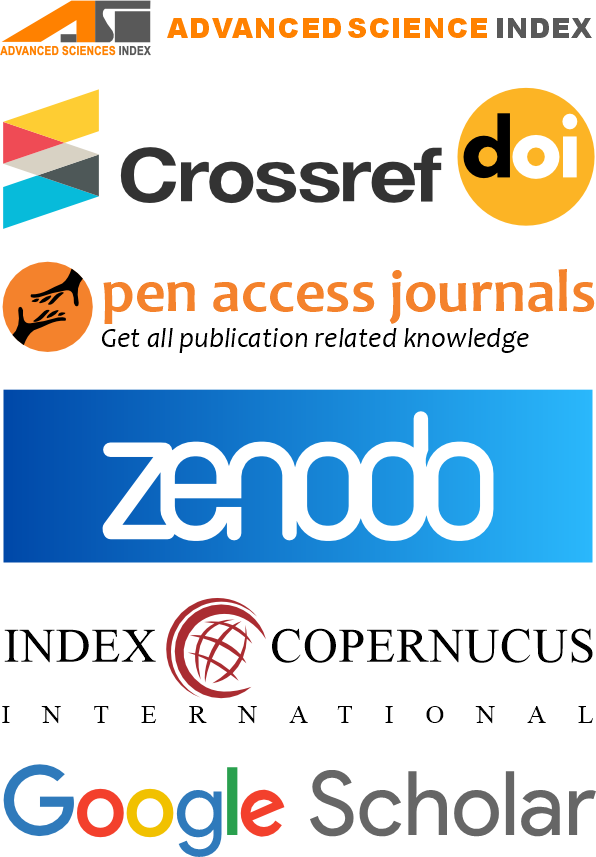An Investigation of the Role of Stress in affecting the Cognitive functioning and Psychological Adjustment of Caregivers of Children with Thalassemia
DOI:
https://doi.org/10.62997/rl.2025.42076Keywords:
Caregivers, Children, Cognitive Functioning, Psychological Adjustment, Stress, ThalassemiaAbstract
To examine the role of stress in affecting the cognitive functioning and psychological adjustment of caregivers of children with thalassemia. It was a Cross-sectional observational study. The stress, cognitive functioning, and psychological adjustment were measured by using the Perceived Stress Scale, the Montreal Cognitive Assessment, and the Scale of Adjustment for Adults, respectively. Other necessary information was asked on the demographic sheet. The data of 200 caregivers of the children with thalassemia was confirmed by using analysis of Structural Equation Modeling, and the model fit was confirmed with the p-value of .004. It established that stress predicts the cognitive functioning and psychological adjustment of caregivers of the children with Thalassemia whereas inspecting the relationship among the variables individually, the stress predicts cognitive functioning with the regression estimates of -0.216 with a p-value, .000 which specifies that if stress increases by 1 unit the cognitive functioning lower down to 0.216. While the role of stress in affecting psychological adjustment had regression estimates of 2.276, which implies that if stress increases by 1 unit, the increase in psychological adjustment problems is by 2.276 (p-value, .000). There was a role of stress in affecting the cognitive functioning and psychological adjustment of caregivers of the children with thalassemia.
References
American Psychiatric Association. (2022). Diagnostic and statistical manual of mental disorders (5th ed., text rev.; DSM-5-TR). American Psychiatric Publishing.
Angastiniotis, M., & Lobitz, S. (2019). Thalassemias: An overview. International Journal of Neonatal Screening, 5(1), 16. https://doi.org/10.3390/ijns5010016
Boots, L. M., de Vugt, M. E., Kempen, G. I., & Verhey, F. R. (2018). Effectiveness of a blended care self-management program for caregivers of people with early-stage dementia (Partner in Balance): Randomized controlled trial. Journal of Medical Internet Research, 20(7), e10017. https://doi.org/10.2196/10017
Browne, M. W., & Cudeck, R. (1993). Alternative ways of assessing model fit. In K. A. Bollen & J. S. Long (Eds.), Testing structural equation models (pp. 136–162). Sage.
Byrne, B. M. (2006). Structural equation modeling with EQS: Basic concepts, applications, and programming (2nd ed.). Lawrence Erlbaum Associates Publishers.
Cohen, S., Kamarck, T., & Mermelstein, R. (1983). A global measure of perceived stress. Journal of Health and Social Behavior, 24(4), 385–396. https://doi.org/10.2307/2136404
Dirikkan, F., Baysan Arabacı, L., & Mutlu, E. (2018). The caregiver burden and the psychosocial adjustment of caregivers of cardiac failure patients. Turkish Journal of Cardiology Archives, 46(8), 692–701. https://doi.org/10.5543/tkda.2018.69057
Ebrahim, S., Raza, A. Z., Hussain, M., Khan, A., Kumari, L., Rasheed, R., et al. (2019). Knowledge and beliefs regarding thalassemia in an urban population. Cureus, 11(7), e5268. https://doi.org/10.7759/cureus.5268
Habib, F., Evans, J. J., & Raiz, M. N. (2010). Montreal Cognitive Assessment - Test Urdu. http://www.mocatest.org/wp-content/uploads/2015/03/MoCA-Test-Urdu.pdf
Heidari, H., Ahmadi, A., Solati, K., & Habibian, Z. (2018). Stress management experience of caregivers of thalassemia children: A qualitative research. Iranian Journal of Pediatric Hematology and Oncology, 8(3), 161–165. http://ijpho.ssu.ac.ir/article-1-389-en.html
Hisam, A., Sadiq, K. N., Tariq, N. A., Irfan, H., Arif, B., & Noor, M. (2018). Perceived stress and monetary burden among thalassaemia patients and their caregivers. Pakistan Journal of Medical Sciences, 34(4), 901–906. https://doi.org/10.12669/pjms.344.15420
Hooper, D., Coughlan, J., & Mullen, M. (2008). Structural equation modelling: Guidelines for determining model fit. Electronic Journal of Business Research Methods, 6(1), 53–60. https://academic-publishing.org/index.php/ejbrm/article/view/1224/1187
Hu, L., & Bentler, P. M. (1999). Cutoff criteria for fit indexes in covariance structure analysis: Conventional criteria versus new alternatives. Structural Equation Modeling, 6(1), 1–55. http://dx.doi.org/10.1080/10705519909540118
Kurita, K., Lachs, M. S., Adelman, R. D., Siegler, E. L., Reid, M. C., & Prigerson, H. G. (2018). Mild cognitive dysfunction of caregivers and its association with care recipients' end-of-life plans and preferences. PLOS ONE, 13(4), e0196147. https://doi.org/10.1371/journal.pone.0196147
Lathan, C., Wallace, A. S., Shewbridge, R., Ng, N., Morrison, G., & Resnick, H. E. (2016). Cognitive health assessment and establishment of a virtual cohort of dementia caregivers. Dementia and Geriatric Cognitive Disorders Extra, 6(1), 98–107. https://doi.org/10.1159/000444390
Legg, T. J. (2020). What’s your stress type? Healthline. https://www.healthline.com/health/whats-your-stress-type
Mallya, S., & Fiocco, A. J. (2018). Impact of informal caregiving on cognitive function and well-being in Canada. International Psychogeriatrics, 30(7), 1049–1055. https://doi.org/10.1017/S1041610217002923
Mariam, A., Sarwar, A., Maqsood, R., Bashir, A., Aamir, K., & Luna, M. I. (2020, October 4). Perceived Stress Scale Urdu. Psychology Roots. https://psychologyroots.com/perceived-stress-scale-urdu/
Naz, I., Bano, Z., & Leghari, N. U. (2018). Construction of scales on depression, anxiety and conduct disturbance of adjustment for adults: Developing a reliable measure. Isra Journal of Medical Sciences, 10(5), 310–314.
ScienceDirect. (2020). Thalassemia. https://www.sciencedirect.com/topics/medicine-and-dentistry/thalassemia
Searle, W., & Ward, C. (1990). The prediction of psychological and socio-cultural adjustment during cross-cultural transitions. International Journal of Intercultural Relations, 14(4), 449–464. https://doi.org/10.1016/0147-1767(90)90030-Z
Selye, H. (1975). Confusion and controversy in the stress field. Journal of Human Stress, 1(2), 37–44. https://doi.org/10.1080/0097840x.1975.9940406
The Express Tribune. (2012). 5000 children in Pakistan diagnosed with thalassemia every year Experts. The Express Tribune. https://tribune.com.pk/story/455773/5000-children-in-pakistan-diagnosed-with-thalassemia-every-year-experts/
The Recovery Village. (2020). Drug and alcohol treatment resources for caregivers. https://www.therecoveryvillage.com/resources/caregivers-substance-abuse/#gref
Vitaliano, P. P., Murphy, M., Young, H. M., Echeverria, D., & Borson, S. (2011). Does caring for a spouse with dementia promote cognitive decline? A hypothesis and proposed mechanisms. Journal of the American Geriatrics Society, 59(5), 900–908. https://doi.org/10.1111/j.1532-5415.2011.03358.x
Wallin, A., Kettunen, P., Johansson, P. M., Jonsdottir, I. H., Nilsson, C., Nilsson, M., Eckerström, M., Nordlund, A., Nyberg, L., Sunnerhagen, K. S., Svensson, J., Terzis, B., Wahlund, L.-O., & Georg Kuhn, H. (2018). Cognitive medicine - a new approach in health care science. BMC Psychiatry, 18(1), 42. https://doi.org/10.1186/s12888-018-1615-0






